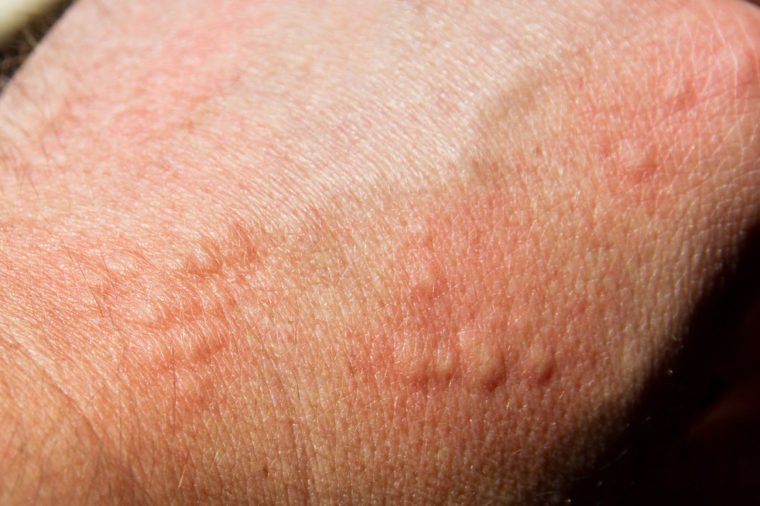Allergies
Allergies are an abnormal reaction by sensitive people to food or environmental substances. Not everyone is prone to this problem. However, for those who are troubled with allergic reactions, the discomfort acts as a barometer or a warning signal. It tells tehm that their bodies are susceptible to potentially dangerous repercussions if they do not heed the warnings.
Major causes of allergies
ALLERGIC reactions are the most frequently unrecognized cause of illness today. Allergy-producing substances, or allergens, are all around us. They include pollen, animal fluff, house dust, furs, feathers, leather, dyes, cosmetics, perfumes, industrial and household chemicals and insecticides. Some of the most common offenders are subtances we ingest, such as cow’s milk, eggs, oranges, gluten, wheat, barley, rye, oats, triticale, chocolate, seafood, sugar, some mangos, alcohol and tobacco. Also common are chemicals additives in food, such as colourings, preservatives and msg.
Also be aware formaldehyde in insulations and polyurethane in building materials, as well as household chemicals, prescription and hard drugs, all of which can cause severe allergic reactions.
Allergies and food
MANY allergies that people acquire, often in their chidhood, have started with the wrong combination of foods, beverages and analgesic drugs. The numbers of allergies and their effects tend to increase as the person gets older. Therefore, it would be wise for young mothers to learn what combinations of alkaline and acid forming foods they should feed their babies right from the beginning, in order to avoid all the unnecessary infant ailments and diseases.
Food allergies can create depression, axiety, hyperactivity and aggresive behaviour. Many people crave the very foods they are allegic to. Subconsciously, many know the food or drink they consume is affecting them.


| The chocolate and milk rascals
Chocolate is high on the list of potential allergens. Apart from robbing the body complex nutrients, it is known to affect the skin, espcially in teenagers with acne, and it is known to contribute to psoriasis. Chocolate is also harmful because ir promotes tooth decay and inflamed gums. If you must eat chocolate once in a while, eat a piece of fruit and drink a glass of water after eating chocolate. This will help neutralize the acid forming characteristic of chocolate.
Milk and milk products are similarly in the list. They contain a protein called casein which has a glue-like quality in the intestine. They also have the ability to neutralize hydrochloric acid in the stomach, and the stomach has to work harder to produce enough acid to facilitate digestion. They can also generate excessive amounts of mucus in the intestines, lungs and sinus canals. Excess mucus in the intestines hardens to a coating on the lining of the intestine, making it difficult for nutrients to be absorbed in the intestine. This means that you could be eating a lot of food, but deriving very little nutritional benefit.
Most children seven years old and over, do not digest lactose (dairy products) effitiently. As adults, they may develop a lactose intolerance and suffer from cramps bloating, diarrhoea and intestinal gas.
| Commercialism of food
SO many people are deceived by the greed-driven commercialism of some unscrupulous food manufacturers. Their products are made to be very inviting, but one must always bear in mind, that most them are not what they appear to be. Only people who are nutritionally aware can differentiate the good from the bad.
Allergy triggers


FOR extra protection against the effects of allergies, first try to isolate the causes of your allergy, one by one. Don’t overlook the obvious, and especially notice the following:
- Food additives, rather than food itself, are major allergy culprits.
- Irritable bowel syndrome is often caused by the food we are allergic to.
- Dust mites are abundant in your pet’s fur, featehr down from pillows, doonas, quilts, or even in dead skin particles on your mattress and bed linen.
- Dusty drapes and carpets, mould and mildew in bathrooms, as well as dampness can all cause allergies.
- Pollen from tress and grasses are major culprits. Be sure to clean filters in air conditioners and to blow out all the dust from floow heaters.
- Tooth paste is an allergen to many people. A good safe home-made tooth paste can be made from a mixture of baxing soda and salt.
- Ventilation in your car and home is important. Carbon monoxide can flow into the car from under the dash board or through the fire-wall. Older cars are more likely to have this failing. Gas and kerosene heaters also give off carbon monoxide and dioxide.
- Sanitary tampons made from synthetic fibres have been known to be fatal allergen. Although this is very rare, you may consider natural pure cotton tampons as an alternative.
- Chemical hair dyes are generally toxic to the scalp and skin. Try to find one with natural ingredients.
- Synthetic underwear has caused thousands of cases of allergic reaction. It also builds up unhealthy static electricity on the wearer’s body.
Things to avoid

- Dust mite
- Cockroaches
- Dust
- Alcohol
- Tobacco
- Chocolate
- Hair sprays
- Perfumes
- Bleaches
- Insulation
- Carpets
- Folmaldehyde
- Drugs
- Closed up houses
- Household chemicals
- All processed foods
- Cow’s milk
- Cheese
- barley
- Corn
- Gluten
- Wheat
- Oats
- Rye
- Triticale
- Sea food
- Soya milk
- Tofu
- Oranges
- Some kinds of mangos
- Gravy
- Pickles
- Sauces
- Nuts
- Eggs
- Sugar
- Soy products
- Food with sulphates
- Nitrates
- Msg
- Dairy products
- Sweet foods
- Preservatives
- Additives
- Food colourings
- Chemicals in food
Essential Foods
Vegetables: (Preferably organic grown) – Asparagous, bean, broccoli, brown rice, carrot, cauliflower, cucumber, garlic, yam, lettuce, onion, green pea, spinach, cabbage, squash, zucchini, gingerm green papaya, horseradish, green sprouts.
Vegetables juices: Carrot, cucumber, beet root, green leafy vegetables.
Combine any of these juices with a little ginger, or garlic.
Fruits: Apple, prune, pineapple, grape, pear, peach, banana, blueberry.
DRIED FRUITS: Date, fig, prune, apricot, raisins.
Liquids:
TEAS: Alfalfa, red clover eucalyptus, thyme, fenugreek, ginger, eyebright, dandelion, green tea.
WATER: 8 glasses of filtered water daily is essential.
Other remedies
Alfalfa and pollen tablets; alfalfa tea.
Lecithin granules, millet, freshly ground flaxseed, fresh rice bran, liquid chlorophyll, spirulina, olive oil, flaxseed oil.
Find out what you are specifically allergic to, and avoid it.
Vitamins, Minerals and Herbs
VITAMINS: A, B2, B5, B6, B Complex, C, E, Bioflavinoids.
MINERALS: Selenium, calcium, magnesium.
HERBS: Echinacea, juniper, comfrey, golden seal, ginger, celery tablets.
DIGESTIVE ENZYMES: Co-enzyme Q10, papaya enzyme, lactobacillus acidophilus bifisobacterium.
